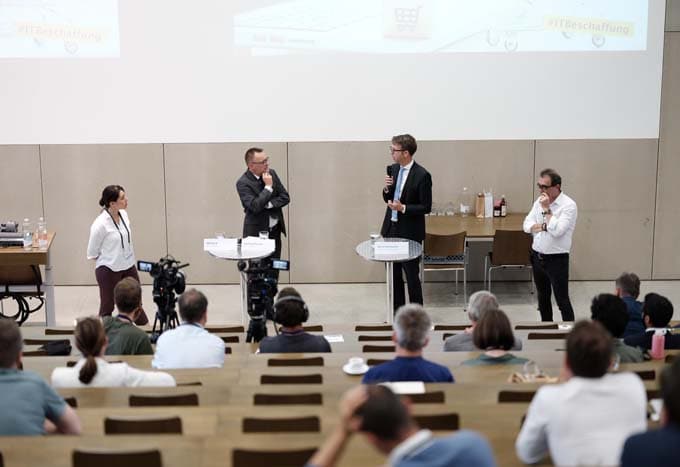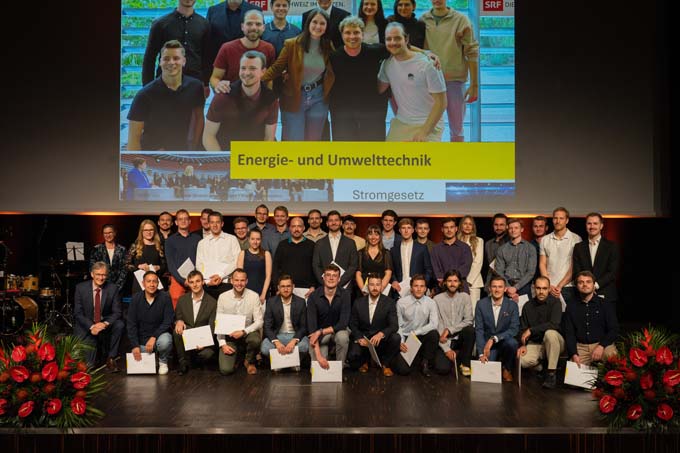IT Procurement Conference: The Administration's Role as a Role Model in Public Procurement
As part of the eleventh IT Procurement Conference, around 300 stakeholders from the public procurement sector met in Bern on August 24. Among other things, they addressed the question of how requirements criteria can be used under the new procurement law to implement sustainability, i.e. environmental and social standards, more effectively throughout the supply chain.

The annual IT procurement conference was organized by the Institute Public Sector Transformation of the Bern University of Applied Sciences (BFH) and the Institute of Business Informatics of the University of Bern, in cooperation with the Digital Transformation and ICT Steering Division (DTI) of the Federal Chancellery, the Federal Office for Buildings and Logistics (BBL), Digital Administration Switzerland (DVS) and the associations swissICT and CH Open. The event was aimed at procurers, consultants, lawyers and specialists working in the field of public procurement.
Targeted promotion of sustainability with new criteria in public procurement law
Public procurement of information and communication technology (ICT) goods is complex. Procurers of ICT equipment must constantly weigh up the legal minimum social and ecological requirements, rising expectations of the products and the cost pressure of the client. In the process, applicable standards are rarely monitored, and sustainability has not played a significant role in the balancing act until now. This could now change.
New opportunities through revision of public procurement law
With the current revision of the Federal Law on Public Procurement (BöB), procurers can not only define additional sustainability requirements as exclusion criteria, but also reward innovation and a better life cycle assessment as part of determining the most advantageous offer. In addition, compliance with minimum standards in particular can be better verified. How these criteria are actually used in tenders and how
The discussion among invited experts focused on the actual extent of the impact in practice.
Some insights from the IT procurement conference
Dr. Peter Pawlicki of Electronic Watch, a representative of a monitoring organization, notes "a great demand for industry-independent monitoring of contractual obligations to comply with human rights and labor standards". Another promising approach is the use of digital solutions that support the procurement process end-to-end and thus have great potential to support not only effectiveness and efficiency in purchasing, but also the enforcement and assurance of compliance with legal requirements.
How can the new law be implemented in such a way that real change becomes tangible? Both the WTO panel and the specialist session on sustainable procurement revealed that cooperation between the public procuring entity and the trade associations is essential.
of the IT industry can decisively advance the issue of sustainability in the IT sector. This is vividly illustrated by the example of the negotiations between the Ministry of the Interior and the IT industry association BITKOM in Germany.









